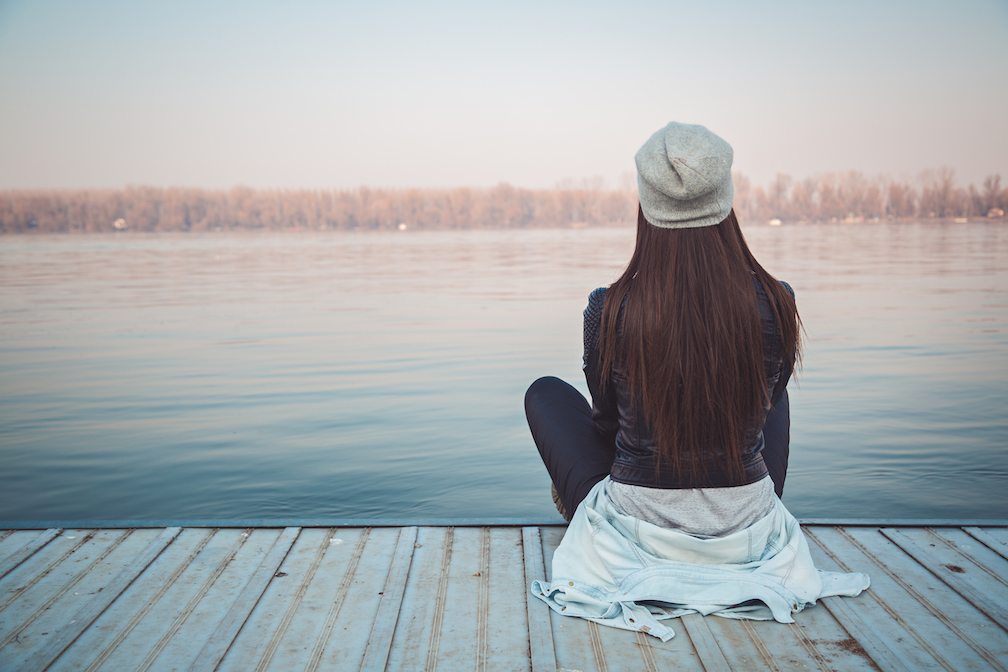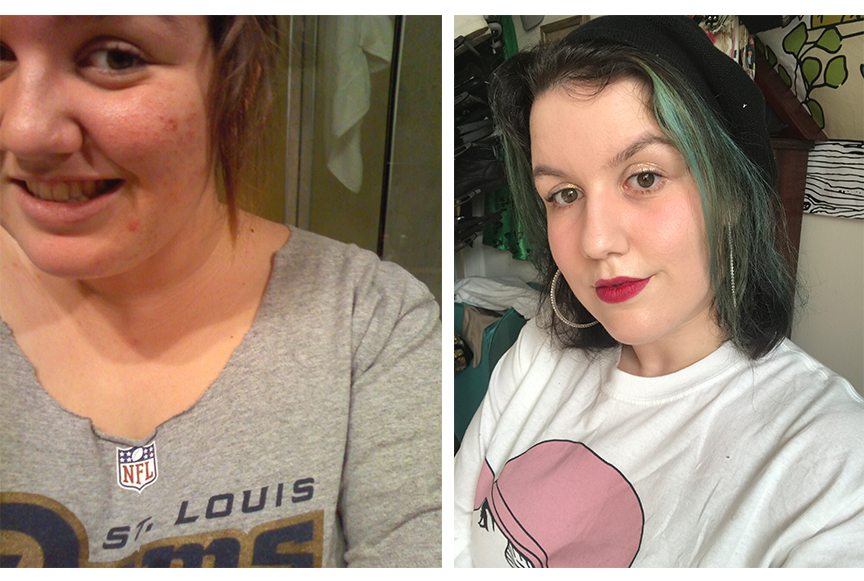Acne sucks for anyone — but at age 9? The blemishes that plagued one writer as a child were due to an endocrine disorder, but the scars they left could have been far worse than the visible kind. Thankfully, dealing with childhood acne taught Miranda Rico not just how to care for her skin but how to be beautiful inside and out.
_____________________________________________________________________
Oh, acne. Most of us have experienced some form of it — from the small, easy-to-conceal blemish to full-blown breakouts — and everyone can rejoice in the fact that acne sucks. A lot.
In fact, it’s literally science: The Medical Clinics of North America Journal states that “no single disease causes more psychic trauma, more maladjustment between parents and children, more general insecurity and feelings of inferiority and greater sums of psychic suffering than does acne.” In layman’s terms: Acne affects more than just the face. It affects your mental health, relationships, self-image, and psyche.
There isn’t a single point in my childhood where I don’t remember having acne. From ages 6 to 18, my entire experience regarding self-image was surrounded by the large bumps that expanded on my face, neck, chest, and back. As a child, it was just something I had to deal with. To my parents, it felt like a near-freak accident and rightfully so: Nobody in my family — mother or father’s side — suffered from acne. I was nowhere near as blessed as my relatives in the skin department; the main issue within my gorgeously tanned, acne-free bloodline was purely cosmetic (wrinkles, dark spots, etc.).
While suffering from childhood acne as aggressive as mine most definitely placed a burden on many facets on my life, it also brought many positives, as well as invaluable lessons learned on the road to a clear complexion.

Lesson #1: Beauty is literally from within
As far as anybody was concerned, my childhood acne came from nowhere and was basically a lost cause. That was the consensus amongst my closest friends and loved ones until I visited an OBGYN for the first time at age 17. During what was supposed to be a routine checkup, my doctor ordered immediate testing. After an ultrasound or two and what seemed like an endless amount of questions, the reason for my acne was finally discovered. I was immediately diagnosed with PCOS, a disorder that affects the endocrine system. It affects many aspects of one’s life, with cystic acne being one of the main symptoms of the syndrome. Initially feeling defeated in my diagnosis, I came to realize that this was a blessing in disguise, as I could finally pinpoint what was causing this distress, both physical and emotional.
With this knowledge, I could correctly understand where my acne was originating from. Now, at 22, I realize that my condition directly affects how I should treat my body; how I eat, drink, and apply skincare is all based on how it will directly affect my acne-sensitive disorder. Knowing how my body functions is a direct correlation to how I treat my skin, and it is better because of my diagnosis.
Lesson #2: Even if you can’t see it immediately, skincare makes a world of difference
It’s relatively rare to see a Westerner have a full-blown skincare routine at 9 years old. Many of my parents’ peers gave them the side-eye, and I straight up hated globbing multiple products on. As much as I groaned and complained to my mom about how I didn’t need toner or how nothing was going to change my acne, anyway, I am eternally grateful that my parents got me started on skincare as early as they did.

Although my results weren’t immediate, the texture of my skin now is thanks to all the hard work my parents and I put into it. I won’t front: My childhood acne was mainly cleared with a medical topical solution. This solution, however, has reports of dry, patchy, flaky skin once the acne has cleared up. Even worse, somebody with the gravity of acne that I suffered from will likely experience aggressive scarring and discoloration that is lifelong, as well as small flare-ups here and there. I was lucky enough to not have any of these experiences due to the intense care put into my skin beforehand.
Not to toot my own horn, but I am constantly complimented on my skin. As much as I fought my parents on applying layers of product twice a day, I realize now that the quality of my skin is due to the multi-step regimen that was implemented early in my life. I may have had bumps and scabs everywhere, but the fact that I was implementing bee venom, Manuka honey, and other skin-healing/softening/cooling ingredients ensured that my skin would heal better once the acne was gone. Acne isn’t the only issue that should be tackled in your skincare routine!
Although I will always recommend consulting with a professional, being ahead of the curve on essences, AHAs, and exfoliators has allowed me to give an unbiased, experienced opinion on many products to my fellow Western friends. Seeing them notice improvements in their skin — and confidence — means the world to me because I’ve shared the same experiences.
Lesson #3: It’s okay to defend yourself
If you’ve ever suffered from acne, you most likely remember a few distinct comments that were made towards you. In school I was teased in every way possible; personally, though, I will never forget the day I was being interviewed for a coveted volunteering position in high school. In the midst of my perfectly rehearsed explanation as to why I would be perfect for the position, the interviewer suddenly blurted out the name of a random skincare brand. Confused, the interview transformed into a session on the “perfect” way to get rid of my acne and just how “beautiful” I would be if I just listened to her advice. Just like that, nothing I had said, none of my previous experience, poise, or ability mattered — just the cysts that engulfed my skin. It didn’t help that I had spent all morning trying to cover them. Now, every time I pass by that brand on a store shelf, I am taken back to that traumatizing moment.
It’s OK to feel offended at unsolicited “advice.” It is even more okay to let them know that their “advice” is not welcome. To many, “advice” seems more like a direct attack and rightfully so —they see acne as a flaw, a mistake, and what defines you. Unless directly asked, nobody should be commenting on your appearance with a negative connotation. Acne is a sore and sensitive subject for many. It doesn’t feel good to have it brought up — we know it’s there, and are most likely trying to change it.
There are also those who don’t care to change it. Your body is a marvelous thing, and its natural occurrences shouldn’t be considered “ugly” or something to be fixed. How one confronts their features is purely their choice, and their choice only. Never hesitate to let anybody know that.
Did you ever suffer from childhood acne or anything else in your childhood that taught you invaluable lessons about life, self-esteem, or beauty? What do you do when someone provides unsolicited advice on your acne or other skin “flaw”? Share with me your experiences and how you dealt with it.
Loading...